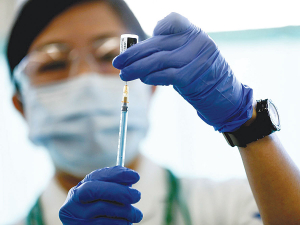M.I.A.
OPINION: The previous government spent too much during the Covid-19 pandemic, despite warnings from officials, according to a briefing released by the Treasury.
 Rural NZ is again getting the rough end of the stick when it comes to services - this time in relation to Covid-19 vaccinations.
Rural NZ is again getting the rough end of the stick when it comes to services - this time in relation to Covid-19 vaccinations.
OPINION: Rural NZ is again getting the rough end of the stick when it comes to services - this time in relation to Covid-19 vaccinations.
It appears the boffins at the Ministry of Health and the Government's Wellington-centric, top-down Covid-19 vaccination rollout programme is leaving rural New Zealanders as the poor cousins compares to their urban counterparts. No surprises there.
It doesn't take a rocket scientist to understand that unlike urban centres, many rural New Zealanders have to travel a long way to get to a city-based vaccination outlet. Meanwhile, with most in rural NZ classed as essential workers getting a vaccination during the day has also proven difficult.
Dunedin School of Medicine research has found that rural Covid-19 vaccination rates are more than 10% behind urban rates. The University of Otago data has found the number of people who had at least one dose of the vaccine was 11% lower in rural areas and up to 19% lower in remote rural areas compared to major metropolitan centres.
As New Zealand Rural General Practice Network chief executive Dr Grant Davidson point out these inequities are expected, but still worrying.
"What is most concerning is that it confirms that the productive rural backbone of our country is significantly at risk. Due to a lack of accessibility in rural New Zealand, it is no surprise that rural populations are lagging in vaccination rates."
Many rural employers have taken things into their own hands to try combat the hurdles their workers face in trying to get a jab.
While not making it mandatory, Fonterra has strongly ecnouraged its employees to get vaccinated. It has been offering workplace vaccination clinics at its sites across the country, through which more than 7,500 vaccinations had been administered to its 11,000 staff.
A number of meat companies have also offered workplace vaccinations and Zespri is also encouraging its staff to get vaccinated.
Federated Farmers has been telling farmers they should do all they can to enable and encourage their staff to get vaccinations.
Meanwhile, some rural and regional health boards have taken it upon themselves to take vaccinations out to the country, by setting up rural mobile vaccination clinics and travelling out to farms and shearing gangs to deliver jabs.
Feds employment spokesman Chris Lewis sums it up well: "The sooner we get everyone double-vaccinated, the sooner we might safely take steps to getting back to where we were with travel, events and all the rest."
The World Wide Sires National All Day Breeds Best Youth Camp Best All Rounder plaudit has become family affair, with 2026 Paramount Cup winner Holly Williams following in her sister Zara's footsteps.
DairyNZ is giving New Zealand farmers a unique opportunity to gain hands-on governance and leadership experience within the dairy sector.
Herd improvement company LIC has posted a 5.2% lift in half-year revenue, thanks to increasing demand for genetics.
According to the latest Fresh Produce Trend Report from United Fresh, 2026 will be a year where fruit and vegetables are shaped by cost pressures, rapid digital adoption, and a renewed focus on wellbeing at home.
The Roar is a highlight of the game hunting calendar in New Zealand, with thousands of hunters set to head for the hills to hunt male stags during March and April.
OPINION: The past few weeks have been tough on farms across the North Island: floods and storms have caused damage and disruption to families and businesses.

OPINION: Meanwhile, red blooded Northland politician Matua Shane Jones has provided one of the most telling quotes of the year…
OPINION: This old mutt has been around for a few years now and it seems these ‘once in 100-year’ weather…